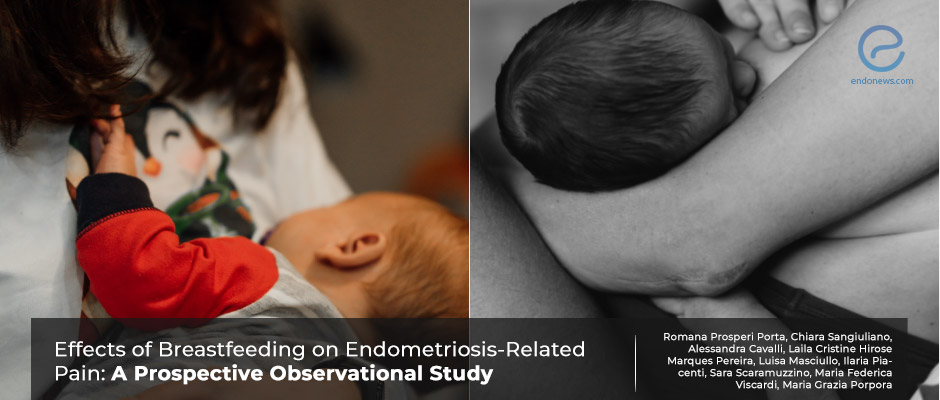Is breastfeeding beneficial to endometriosis pain?
Dec 30, 2021
A prospective study from Italy reveals positive effects of breastfeeding practice in endometriosis patients
Key Points
Highlights:
- Breastfeeding has important effects on hormonal feedbacks, influencing the production of gonadotropin-releasing hormone (GnRH).
- The hormonal feedbacks triggered by breastfeeding seems beneficial in hampering the development of endometriosis and may also prevent recurrences.
Importance:
- Gynecologists should advise women with endometriosis to breastfeed following childbirth, and continue this practice for a considerable period.
What's done here:
- Out of 156 women under follow-up by histologically confirmed endometriosis, 123 (79%) who breastfed their infants were enrolled in this prospective study.
- Breastfeeding women were divided into 6 subgroups according to the duration.
- Mean postpartum amenorrhea, dysmenorrhea prevalence-intensity following the first resumed menstruation were assessed.
Key results:
- All the breastfeeding mothers showed a significant reduction in dysmenorrhea proportional to the duration.
- Acyclic chronic pelvic pain was significantly reduced only in women who exclusively breastfed.
- A decrease in the sizes of endometriomas was also notable in all breastfeeding mothers.
Lay Summary
Dr. Porta team from Italian academic centers have recently published their research in “International Journal of Environmental Research and Public Health” on breastfeeding mothers who were under follow-up for histologically proven endometriosis.
The hormonal milieu is believed to have an important effect in the etiopathogenesis of endometriosis, suggesting that breastfeeding, may influence its course. WHO has recently published issues on the benefits of breastfeeding yielding advantages to mothers and their progeny.
Breastfeeding may have healing effects on endometriosis and reduce its symptoms due to the role of hormones involved in the etiopathogenesis of this illness. It is plausible that hormonal feedback mechanisms of breastfeeding practice may hamper the development of endometriosis and reduce the number of recurrences.
A hundred and twenty-three women who breastfed their progeny among the 156 women (79 %) who were under follow up due to histologically confirmed endometriosis, were enrolled in this prospective study. Breastfeeding women were assessed in 6 subgroups according to the duration of the practice. Mean postpartum amenorrhea duration, dysmenorrhea prevalence and intensity following the first resumed menstruation were evaluated besides clinical and transvaginal ultrasound examinations.
All breastfeeding women experienced a significant reduction in dysmenorrhea which was proportional to the duration. Acyclic chronic pelvic pain was also significantly reduced in mothers who exclusively breastfed, however there was not any significant improvement in dyspareunia. In addition, the sizes of ovarian endometriomas were significantly reduced.
The authors suggest that the breastfeeding practice, especially when it is exclusive, may cause improvement in dysmenorrhea and acyclic chronic pelvic pain proportional to the duration of this practice. Additionally, breastfeeding seems beneficial in reducing the size of ovarian endometriomas.
Research Source: https://pubmed.ncbi.nlm.nih.gov/34682348/
breastfeeding endometrioma endometriosis recurrence endometriosis pathogenesis

